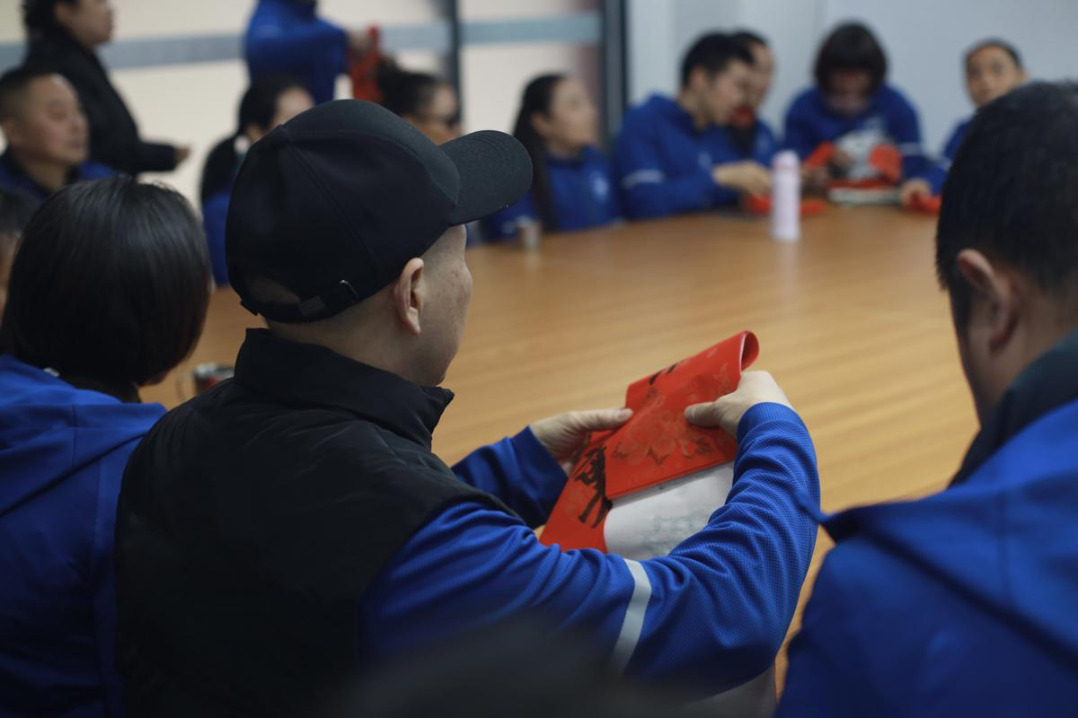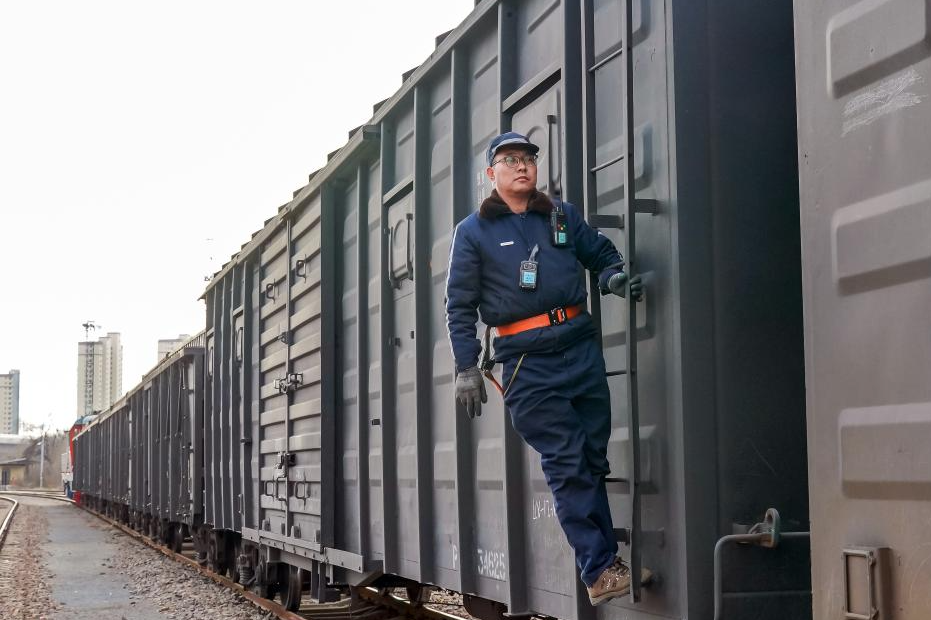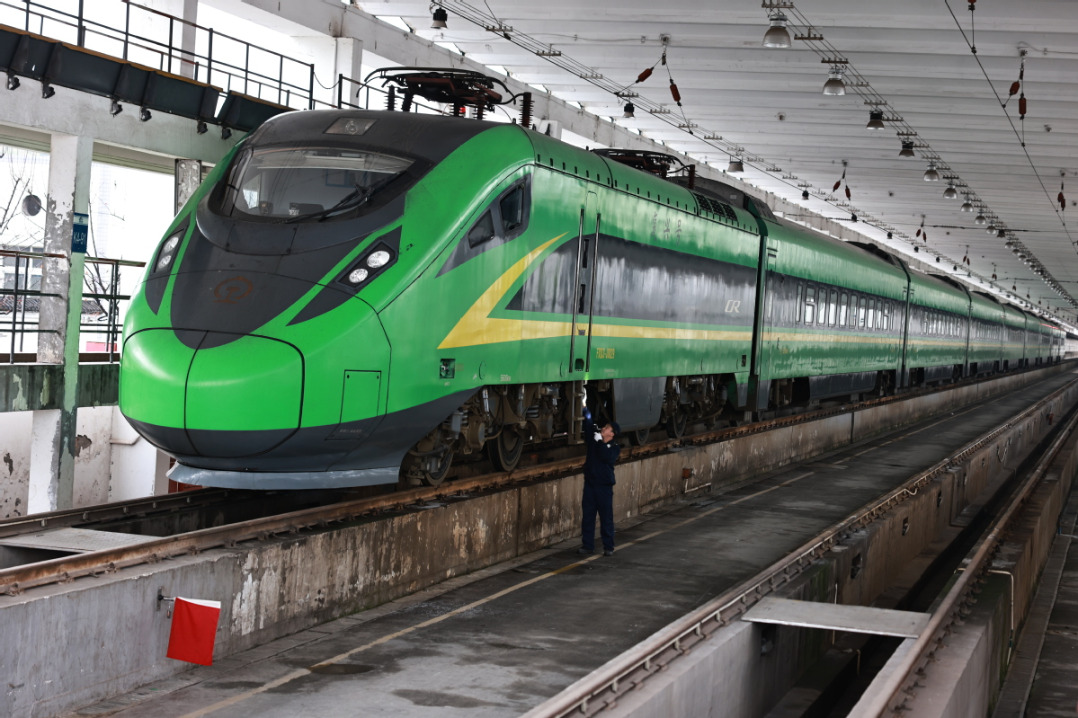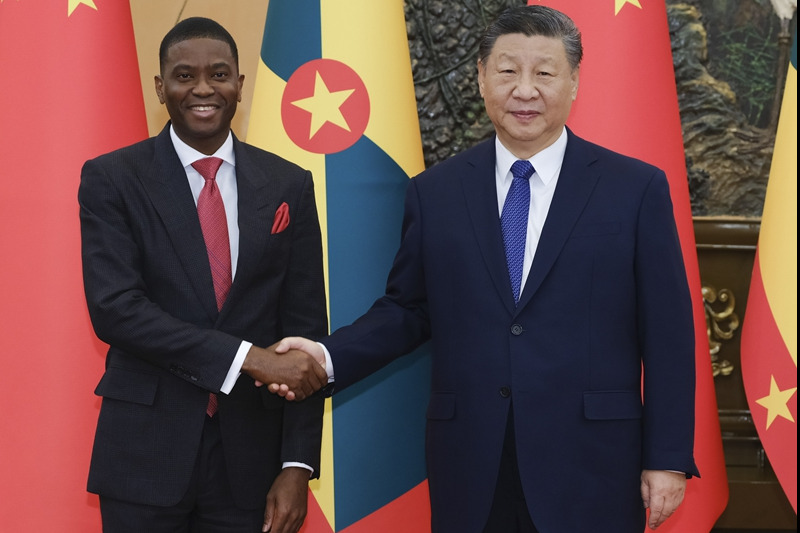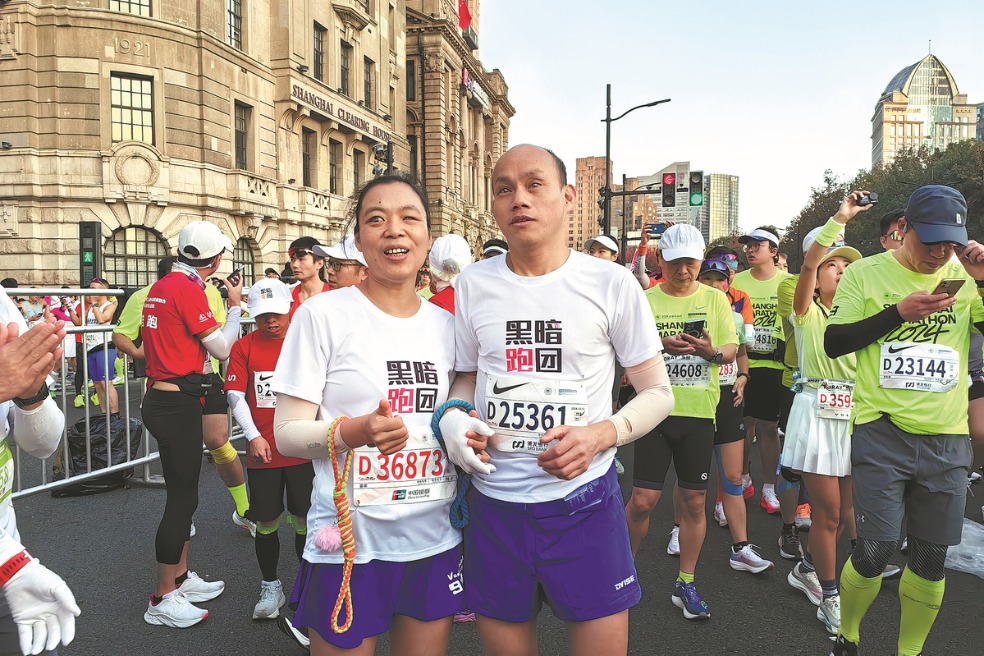Apples from Gansu find favor in global markets

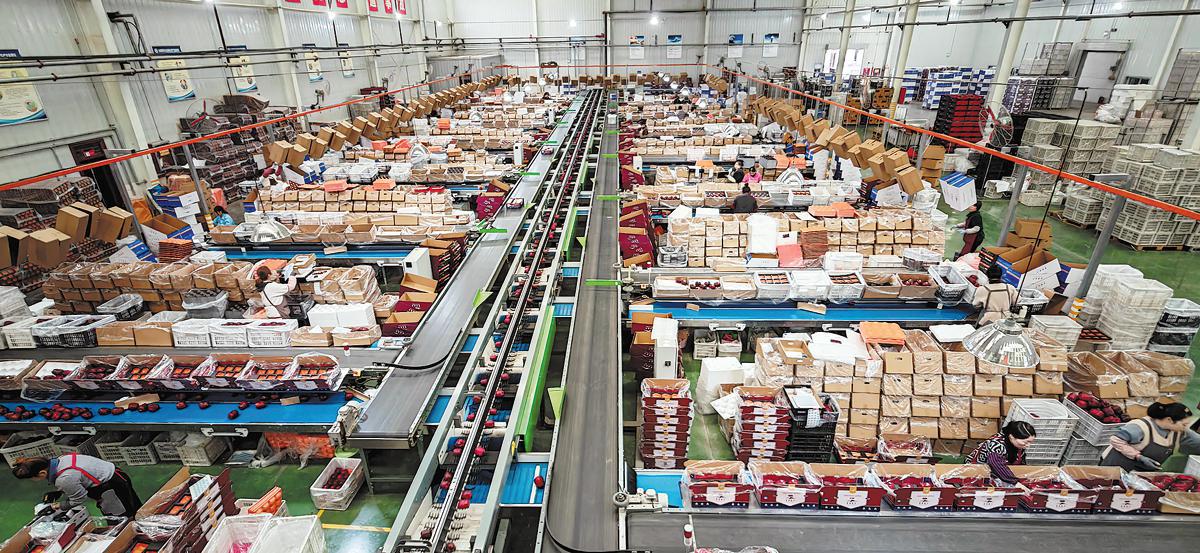
LANZHOU — Ju Aiguo may have only completed first grade, but now at the age of 55 he is a successful apple farmer and an agricultural technician with a medium-grade professional title.
"Trimming, fertilizing, field management and plant protection are four vital steps of planting huaniu apple trees," said Ju, who has been planting the huaniu apple for more than four decades.
Ju lives in the city of Tianshui in Gansu province, which is located on the Loess Plateau and is known for its huaniu apples. Named after a local village, the special apple variety has a ruby color and crisp texture.
The Loess Plateau offers optimum natural conditions for huaniu apple farming, such as a deep soil layer, abundant sunshine and moderate annual rainfall. The planting area of Tianshui covers more than 35,000 hectares with yields totaling about 1.93 million metric tons last year.
Ju learned apple planting techniques through practice and years of training. Now he is often invited to give lectures to local farmers.
He is among 355 local farmers given medium-grade professional titles, along with another 13,000 with primary-grade titles, according to Xie Rui, an official with the local fruit industry office.
They include farmer experts and market information collectors. The variety of new business forms is breathing life into the decades-old industry of huaniu apple cultivation.
At a fruit company in Qin'an county, huaniu apples of varying sizes roll on the production line, which sends them into a sorting machine before being categorized by attributes such as weight and sweetness.
Wang Le, the machine operator, is affectionately known as the "apple doctor". "The imaging technology can easily recognize bad apples and sift them out, making sure that customers receive high-quality ones," Wang said.
Cai Quanbin, deputy general manager of the corporation, said, "With rising sales, quality control is increasingly important." He added that the automated line sorts 30 tons of apples every day.
Big companies also help accelerate the integration of the industrial chain, creating job opportunities and boosting incomes. During the buying season for huaniu apples, every household in Huaimiao village in the county has bright red apples piled up outside ready for sale. "It was a bumper year," Li Xiaosheng, a village official, said about last year's harvest. "More than 10,000 tons of apples were sold, including about 1,000 tons of huaniu."
Deng Wen, an apple buyer from Hubei province, has been purchasing huaniu apples in Qin'an since August.
"The huaniu apple is distinctive in flavor and easy to store. It is quite popular in the high-end market," said Deng, who buys more than two trucks of apples every day during the peak season.
Wu Zhengquan, manager of a local farmers' cooperative specializing in huaniu apple planting and marketing, said, "Thinking ahead of the market is key to making more money."
He said that the cooperative holds meetings on technological production, organizing apple buyers to share their market information, such as which size sells better and what taste is most popular with customers. "The information guides us in planting," he said.
These days, huaniu apples are being embraced by a broader market. In September, 7.6 tons were exported to the Maldives for the first time. In the opinion of Yan Gang, general manager of an agricultural export enterprise, there is big international market potential to be tapped. "We have received orders from many foreign countries and areas since August. The apple is well-liked by foreign customers," Yan said.
Xie disclosed that 18 leading enterprises in Tianshui have been approved for direct export of their apples, with the annual export value reaching 200 million yuan ($27.3 million).
In the first three quarters of last year, the export value of apples in Gansu exceeded 430 million yuan, up 22.4 percent year-on-year, according to local customs.
A diverse range of products based on huaniu apples is making its way to overseas markets.
Tianshui Great Wall Fruit Juice Group purchased 330,000 tons of apples in the first 11 months of last year. Their concentrated apple juice has been sold to the United States, South Africa, Japan and other countries.
Xinhua


















